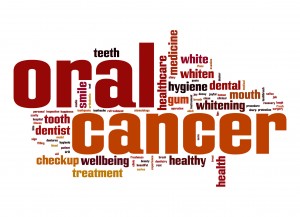How to Prevent Oral Cancer
Cancer is a frightening diagnosis no one wants to hear, but nearly 50,000 Americans will receive the news that they have oral cancer this year. Fortunately, this condition is highly preventable and treatable—as long as it’s detected early.
Several factors affect your risk for oral cancer, two of which you have no control over. These include age (your risk increases as you get older) and gender (men are twice as likely to get oral cancer as women). However, most other risk factors are well within your control. Here are the steps the Prevent Cancer Foundation recommends to prevent oral cancer.
Don’t Use Tobacco
Smoking is a leading cause of oral cancer. “Smokeless” chewing or spitting tobacco is touted as being a safer alternative to cigarettes, but while they reduce the chance of lung cancer, they are equally as harmful when referring to oral cancer. In fact, tobacco in all its forms is the number one risk factor for oral cancer. The Oral Cancer Foundation states that at least 75 percent of oral cancer patients over age 50 are tobacco users. Therefore, quitting your use of this substance is the single best way to prevent oral cancer.
Don’t Drink Alcohol in Excess
Alcohol causes many potential health complications, including increasing your risk for oral cancer. Plus, if you combine heavy drinking with tobacco use, your risk increases 15 times over. If you’re a woman, limit your alcohol intake to no more than one drink per day or two drinks per day if you’re a man.
Limit Your Sun Exposure
You know that ultraviolet rays are a major cause of skin cancer, but they can also cause cancer of the lips. Your best defense is to stay out of the sun between 10 am and 4 pm when UV rays are at their strongest. You should also wear lip balm with SPF 30 or higher to protect against the sun’s effects.
Eat More Fruits and Vegetables
Some recent studies indicate that a diet low in fruits and vegetables could be a risk factor for oral cancer. Conversely, eating more of these healthy foods protects against many types of cancer. While your diet alone can’t be considered a causative factor for the initiation or prevention of cellular events that lead to malignant tissue growth, it certainly doesn’t hurt to increase your vitamin and nutrient intake by eating more plant-based foods.
Check Your Mouth Often for Signs of Oral Cancer
The best way to spot early signs of oral cancer is to have routine screenings performed by a dentist. You can also watch for symptoms that may indicate mouth, tongue, or throat cancer. These include:
- Patches of white or red on your lips, gums, tongue, or insides of your cheeks
- A lump in your mouth or on your neck
- Difficult or painful chewing, swallowing, or speaking
- Hoarse throat without other symptoms of a cold
- Numbness or pain in your mouth that doesn’t dissipate over time
- Swelling of the jaw
- Loose teeth
- Difficulty wearing dentures
- Bleeding or open sores in your mouth or on your lips that don’t heal
- A persistent earache
If you experience any of these early signs of oral cancer, share your findings with your dentist right away.
Visit Dr. Evanson Regularly for Oral Cancer Screenings
The initial stages of mouth, tongue, and throat cancer are often symptom-free, so routine cancer screenings at Evanson DDS can provide the early detection you need to ensure effective treatment. If it’s time for your next teeth cleaning and check-up, please call Evanson DDS at (720) 409-0008 or contact us online. We always include oral cancer screenings as part of each routine visit.
Leave a reply →






